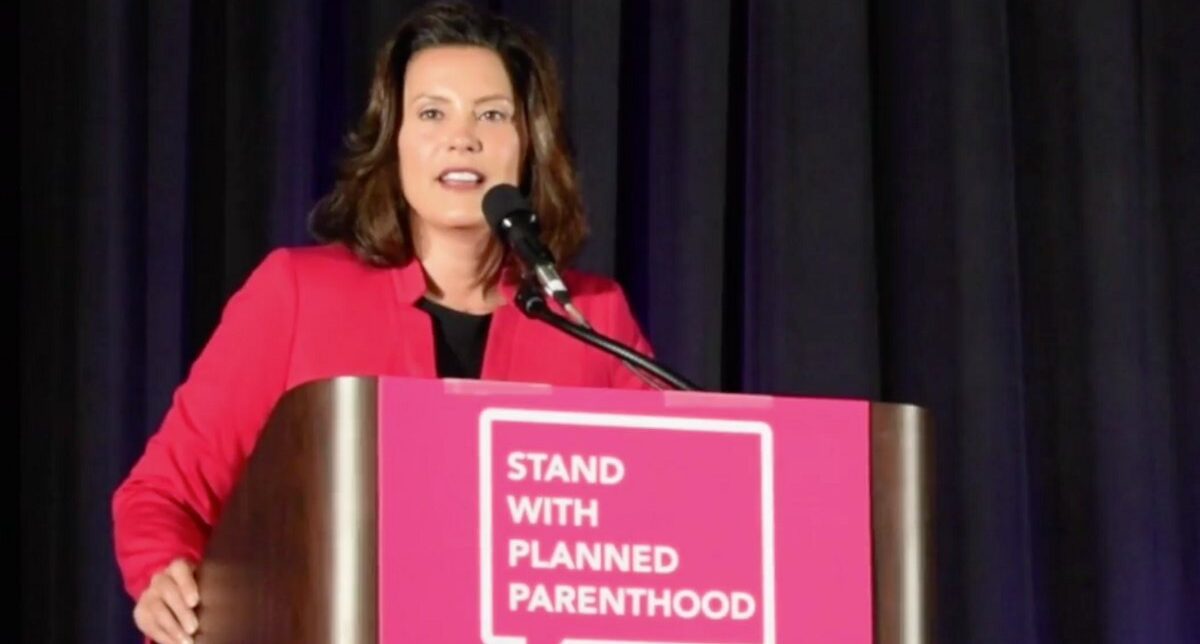We support our Publishers and Content Creators. You can view this story on their website by CLICKING HERE.

Michigan’s nearly 30-year high for abortions in 2023 could jump further with a 2024 court ruling, although legislation approved by Democrats ensures taxpayers will never know for sure.
Abortions performed in the Great Lakes State eclipsed 31,000 last year for the first time since 1995, with the 31,241 induced abortions equating to 16.5 per 1,000 Michigan women of child bearing age, MLive reports. The Centers for Disease Control and Prevention reports the national rate was 11.2 in 2022.
Michigan’s per capita measure represents the highest rate since 1989, when abortions per 1,000 was well north of 20, although the numbers vary widely across the state.
Go Ad-Free, Get Content, Go Premium Today – $1 Trial
In Detroit, for example, the abortion rate was 50.6 in 2022 — a majority — up one from the year prior. Genesee, Wayne, and Macomb counties all had rates above 19, while it’s less than five in many rural counties.
In June, the Michigan Court of Claims struck down portions of the state’s abortion laws as unconstitutional following a ballot referendum approved by voters in 2022 that both enshrined the right to an abortion in the state constitution and helped propel Democrats to their first government trifecta in nearly 40 years.
The court ruling eliminated the state’s mandatory 24-hour waiting period, need to provide informed consent, and ban on clinicians other than physicians providing abortions.
“These provisions only served to delay and mislead patients, which is contradictory to the goals of healthcare,” Michigan Attorney General Dana Nessel said in a statement. “We applaud the Court for this decision and remain undeterred in our work to protect reproductive care for all Michigan residents.”
Go Ad-Free, Get Content, Go Premium Today – $1 Trial
Democrats in Lansing approved legislation that was signed by Gov. Gretchen Whitmer last November known as the Reproductive Health Act, which aims to further expand abortion access by doing away with reporting, licensing and inspections.
“The removal of the reporting requirements at the same time health and safety regulations for abortion clinics were removed should be of concern to any woman who walks into an abortion facility,” Genevieve Marnon, legislative director for Right to Life of Michigan, told Bridge Michigan.
Marnon was among policy and public health experts who pushed back against the legislation, which ended the state’s mandatory reporting on abortions that dates back to 1982. The abortion reporting required clinics to record patents’ ages, marital status, age of fetus, type of procedure, complications and other factors.
It’s through that reporting Michigan documented a 66% increase in out-of-state patients in the wake of the U.S. Supreme Court overturning Roe v. Wade. The data has also provided a picture of how those seeking abortions has changed over time.
For example, in 1985 women over the age of 30 accounted for just 15.7% of Michigan abortions, while that figure was 36.8% in 2023. Abortions for those under 20 years old, meanwhile, dropped from 30.6% of Michigan abortions in 1985 to 8.1% in 2023.
While Whitmer has framed the repeal of the reporting requirements as “a huge step forward to expand access to health care and protect people’s personal freedoms,” others suggest the change puts women at risk.
“While these may inconvenience the abortion provider, they do serve a purpose in allowing the public to know when a clinic is not safe, or a provider has repetitive violations of care,” Catherine Stark, longtime ob-gyn at the Crossroads Care Center in Auburn Hills, testified during legislative hearings on the Reproductive Health Act. “Wouldn’t you want to know which abortion clinics have a high rate of complications, or which clinic has had their license revoked due to dangerous practices?
“How could you know without reporting, licensing, and inspections?”
The short answer is they won’t, and multiple court cases and calls for further legislation could significantly increase Michigan abortions in the future.
The Court of Claims lawsuit brought by the American Civil Liberties Union has already eliminated critical restrictions that have been in place for decades, and the ACLU is pushing another to remove a ban on Medicaid funded abortions in Michigan.
A House Fiscal Agency analysis last year found that funding abortions through Michigan’s Medicaid program would increase costs by $2 million to $6 million.
Also this spring, Human Rights Watch, ACLU of Michigan, and the Michigan Organization of Adolescent Sexual Health issued a report denigrating the state’s parental consent law for teenagers as “invasive, distressing, traumatizing, and often arbitrary.”
“The organizations who published this advocacy piece and their political allies believe they know what is best for children, not parents,” Marnon told the Detroit Free Press. “They are actively seeking to remove parents from one of the most important decisions a minor girl could face, one that everyone acknowledges will have a lifelong impact regardless of the decision.”

 Conservative
Conservative  Search
Search Trending
Trending Current News
Current News 





